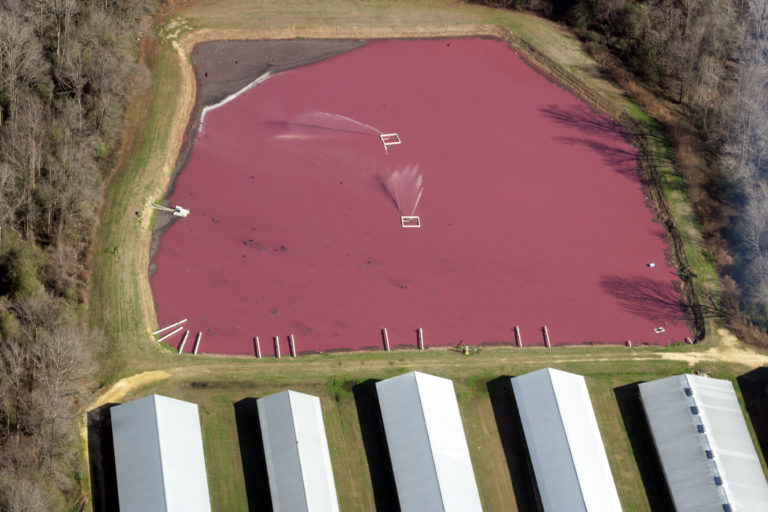Hog Operations Can Follow N.C. Laws and Still Be Liable for Nuisance
By: Will Hendrick

Following North Carolina’s minimal laws governing the disposal of hog waste generated from the state’s factory meat operations does not insulate a company from nuisance liability or punitive damages, Waterkeeper Alliance stated in an amicus curiae (friend of the court) brief filed Friday in the matter of McKiver, et. al v. Murphy-Brown, LLC.
The case is before the U.S. Court of Appeals for the Fourth Circuit. Defendant Murphy-Brown LLC was originally ordered in April 2018 to pay $50.75 million in nuisance damages to ten plaintiffs who are neighbors of one of its hog operations. (Because of a state cap on punitive damages in nuisance cases, the award in the case was reduced to $3.2 million after the jury’s decision.)
The company, which controls the majority of pork-producing operations in North Carolina, challenged that reduced award, contending that since the company was never cited for violating state standards, it is shielded from liability for interfering with its neighbors’ property rights.
The amicus brief filed on behalf of Waterkeeper by the Southern Environmental Law Center rebuts this contention, pointing out that the permit governing hog waste in the state was not designed — and demonstrably failed — to prevent nuisance conditions. The brief also notes the efforts of the pork industry to weaken the permitting regime, as well as the decrease in permit enforcement resulting from debilitating budget cuts at the state’s enforcement agency.
An attachment to the brief quotes the testimony of Christine Lawson, program manager for animal feeding operations at the state’s Department of Environmental Quality. Lawson testified that three full-time inspectors in the state’s Fayetteville Regional Office, part of a North Carolina region with the highest concentration of hogs in the world, are responsible for inspecting more than 700 industrial swine operations each year.
As a result, some operations may not be inspected every year, she testified. And, although a proper inspection may last between two and four hours, some inspections are hurriedly completed in less than 60 minutes.
Since the spring of 2018, juries have found against Murphy-Brown in all four of the nuisance cases heard in the state. The company is the sole defendant in each case.